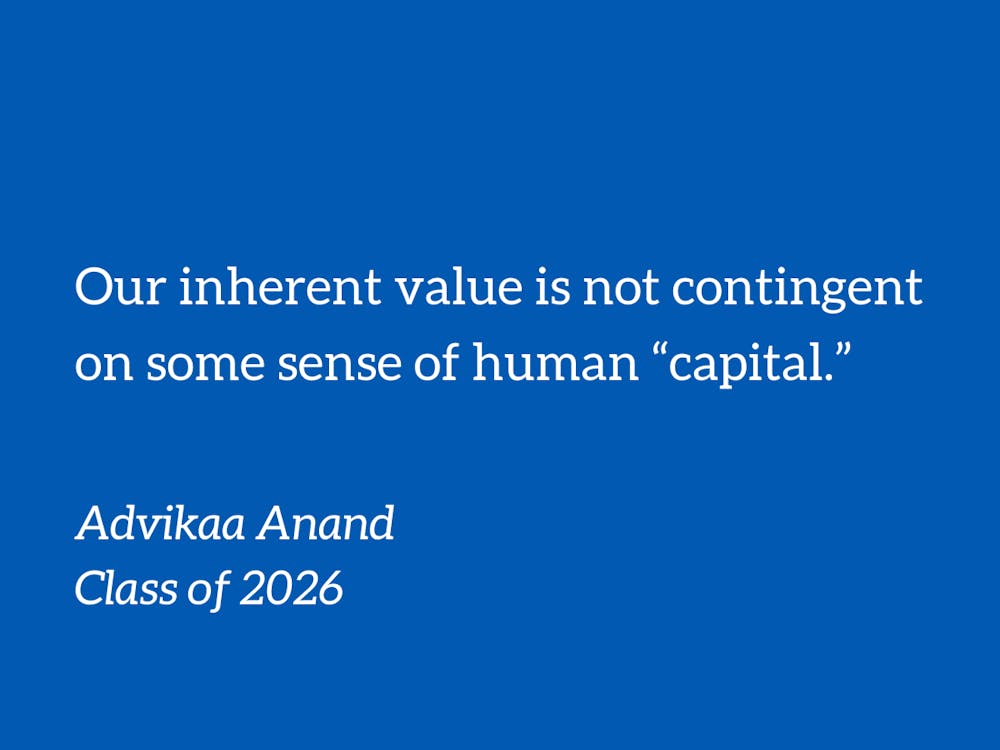Do you remember the first time you were struck by your own reflection staring back at you in the mirror?
I do.
My first mirror hung by the shelves that held my toys. It was purple and speckled with glitter and shaped like an oval with tiara-like spikes at its crown. When I gazed into its glass, it seemed as though the crown sat regally upon my own head.
I often wondered about the girl staring back at me in this mirror. Was she an alternate version of me in another reality? Was the bed behind her and the ceiling above her as real as the ones in my room?
As I grew older, my odd relationship with mirrors persisted. Although I now knew that mirrors were not portals to alternate realities, I could not shake off my fascination. I can recall an awkward situation during a visit to a family friend’s house, where a mirror was hanging right before me and the sight of my own reflection stupefied me. Who was this person?
The friends perceived my tendency as indicative of an odd hubris — a Greek term for pride. But what they failed to understand was that a mirror presents a rare opportunity for us to actually see ourselves. Although we know ourselves better than anyone else, we have seen ourselves only through pictures and cameras and mirrors.
We are fascinated by this person because we want to know them, to understand them and most importantly, evaluate them. How, then, do we decide the worthiness of the person in the mirror — do we hinge our value upon what we have accomplished? Or who we are?
I have tussled with this dilemma for a long time: my sense of self-worth often fluctuates with the ups and downs of my daily life, especially at a highly competitive school like Duke University, which places immense emphasis on the accomplishments inscribed in our resume. Did I get a good grade on that hard exam that I studied weeks for? Did I bag that coveted internship? What prestigious clubs am I a part of?
Yet, I forget that these lenses are often liars.
Pictures and cameras and mirrors are no objective reporters of the truth, capturing all details we could wish to know about ourselves. Instead, they reflect back versions of ourselves that are often distorted by human perceptions of what we should value: accomplishments, appearances and other quantifiable assets.
If others have told us that our talent for writing beautiful poetry is inspiring, then we gaze at our hands, marveling at the magic they have manufactured. If others have told us instead that our poetic abilities are a waste, providing us with no useful skills in the real world, then we fixate upon our hands, wishing they are more adept at coding or solving economic derivatives.
If others have told us that the crooked shape of our teeth makes our smile more charming, then we gaze at our smile, gratified. If others have told us instead that our crooked teeth make us appear menacing, then we fixate upon our smile, contemplating a decision to invest in Invisalign or braces.
How we respond to these thoughts when we look into the mirror, however, is more telling of ourselves than others. Do we have high self-confidence? Low self-confidence? High self-esteem? Low self-esteem? Do we possess an internal locus of self-worth, where our trust and value in ourselves reigns supreme? Or is our self-image contingent upon an external locus of self-worth — how much we trust and value how others view us.
I have often found myself lurking in the second category. And my external locus of self-worth has a gaping flaw: it plummets when things don’t go well.
And often, they don’t.
What do I do then?
Our world has made us wary of excessive hubris — and for good reason. Arrogance is associated with a dangerous host of other behaviors, including violence, carelessness and a general sense of cruelty.
But taking pride in our best qualities – traits that cannot be traced to any tangible outcome, such as our kindness, our humor and our compassion — is not a bad thing; our inherent value is not contingent on some sense of human “capital.”
It’s reductive to presume that our value is linked only to what we can create or produce. Instead, we ought to prioritize our daily impact on the people around us — how do we make them feel? How did we react when our friend was helpless and in pain? Did we conduct ourselves with grace and dignity when we were in a position of power?
So look into the mirror as you embark upon the treacherous journey of discovering who you really are — after all, this is the only way you can really see yourself.
Only be wary of the voices singing in your head when you do and what they say to you.
Listen, instead, to the quiet beat of your heart within — the one that brings joy to those who cannot live without you.
Because we are all beautiful when we see ourselves through the eyes of those who love us.
Advikaa Anand in a Trinity sophomore. Her columns typically run on alternating Thursdays.
Get The Chronicle straight to your inbox
Signup for our weekly newsletter. Cancel at any time.
Advikaa Anand is a Trinity sophomore and an opinion managing editor of The Chronicle's 119th volume.

